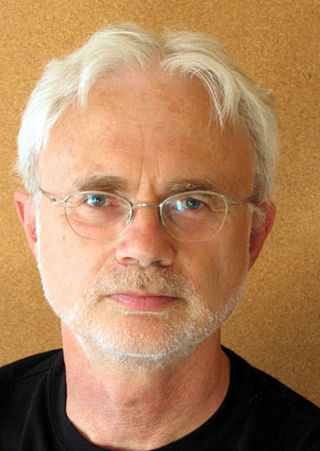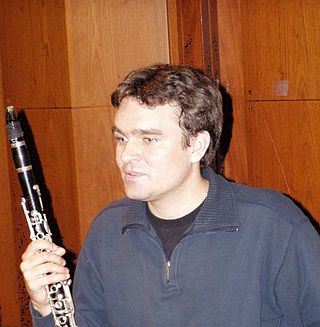Related Research Articles

The War Requiem, Op. 66, is a large-scale setting of the Requiem composed by Benjamin Britten mostly in 1961 and completed in January 1962. The War Requiem was performed for the consecration of the new Coventry Cathedral, which was built after the original fourteenth-century structure was destroyed in a World War II bombing raid. The traditional Latin texts are interspersed, in telling juxtaposition, with extra-liturgical poems by Wilfred Owen, written during World War I.
The Gramophone Classical Music Awards, launched in 1977, are one of the most significant honours bestowed on recordings in the classical record industry. They are often viewed as equivalent to or surpassing the American Grammy award, and referred to as the Oscars for classical music. They are widely regarded as the most influential and prestigious classical music awards in the world. According to Matthew Owen, national sales manager for Harmonia Mundi USA, "ultimately it is the classical award, especially worldwide."

Sir James Loy MacMillan, is a Scottish classical composer and conductor.

Vladimir Mikhailovich Jurowski is a Russian conductor. He is the son of conductor Michail Jurowski, and grandson of Soviet film music composer Vladimir Michailovich Jurowski.

El Niño is an opera-oratorio by the contemporary American composer John Adams. It was premiered on December 15, 2000, at the Théâtre du Châtelet in Paris by soloists Dawn Upshaw, Lorraine Hunt Lieberson and Willard White, the vocal ensemble Theatre of Voices, the London Voices, La Maîtrise de Paris, and the Deutsches Symphonie-Orchester Berlin, with Kent Nagano conducting. It has been performed on a number of occasions since, and has been broadcast on BBC Television.
Roberto Sierra is a Puerto Rican composer of contemporary classical music.
Antonín Dvořák's Requiem in B♭ minor, Op. 89, B. 165, is a funeral Mass scored for soloists, choir and orchestra. It was composed in 1890 and performed for the first time on 9 October 1891, in Birmingham, England, with the composer conducting.

Paul Mealor CStJ CLJ OSS FRSA is a Welsh composer. A large proportion of his output is for chorus, both a cappella and accompanied. He came to wider notice when his motet Ubi Caritas et Amor was performed at the wedding of Prince William and Catherine Middleton in 2011. He later composed the song "Wherever You Are", which became the 2011 Christmas number one in the UK Singles Chart. He has also composed two operas, four symphonies, concerti and chamber music.

Juliette Louise B. Pochin is a Welsh classically trained mezzo-soprano singer, composer/arranger, and record producer. She is known not only for her performances in operas and as a classical recitalist but also for her recordings of operatically styled crossover music. Morgan Pochin Music Productions Ltd, the company she formed with her husband James Morgan, is known for its record productions for artists such as Katherine Jenkins and Alfie Boe, as well as its arrangements for film and television scores.
A Christmas oratorio is an oratorio written for Christmas or the Christmas season.
Steven Mercurio is an American conductor and composer.
Roderick Gregory Coleman Williams OBE is a British baritone and composer.
List of recordings of Johannes Brahms' A German Requiem, Op. 45 (1868).
The Credo is a composition for choir and orchestra set to the text of the Nicene Creed by the Scottish composer James MacMillan. It was first performed August 7, 2012 at The Proms in Royal Albert Hall, London, by the BBC Philharmonic, the Manchester Chamber Choir, the Northern Sinfonia Chorus, and the Rushley Singers under the conductor Juanjo Mena.

Symphony No. 10, Sumé pater patrium: Sinfonia ameríndia com coros (Oratorio) is a composition by the Brazilian composer Heitor Villa-Lobos, written in 1952–53. The broadcast performance of the world-premiere performance under the composer's direction lasts just over 67 minutes.
Scottish composer James MacMillan composed his Viola Concerto in 2013. The work was jointly commissioned by the London Philharmonic Orchestra, the Lucerne Symphony Orchestra, the Bergen Philharmonic Orchestra, and the Adelaide Symphony Orchestra. Its world premiere was given by the violist Lawrence Power and the London Philharmonic Orchestra under the direction of Vladimir Jurowski in the Royal Festival Hall, London, on 15 January 2014. The piece is dedicated to Lawrence Power.
Quickening is a cantata for countertenor, two tenors, two baritones, children's choir, chorus, and orchestra by the Scottish composer James MacMillan. The work was co-commissioned by The Proms and the Philadelphia Orchestra and was completed in 1998. Its world premiere was performed by the Hilliard Ensemble, the BBC Symphony Orchestra & Chorus, and the Westminster Cathedral Boys' Choir under the direction of Andrew Davis at Royal Albert Hall, London, on 5 September 1999. The journalist Damian Thompson of The Spectator described it as "one of MacMillan's masterpieces."

Arche is an oratorio for soloists, choirs, organ and orchestra by Jörg Widmann. It was commissioned by Kent Nagano for the opening of the Elbphilharmonie, Hamburg. In the premiere on 13 January 2017, he conducted 300 performers.
Symphony No. 5 Le grand Inconnu is a choral symphony by the Scottish composer James MacMillan. The work was commissioned by the Genesis Foundation. It was first performed by the U.K.-based choir The Sixteen, the Genesis Sixteen chamber choir, and Scottish Chamber Orchestra conducted by Harry Christophers in Usher Hall, Edinburgh, on 17 August 2019.
References
- 1 2 3 MacMillan, James (2021). "Altar de Cuerda". Boosey & Hawkes . Retrieved 27 August 2023.
- ↑ Tonkin, Boyd (6 December 2021). "MacMillan Christmas Oratorio, LPO, Elder, RFH review – a new star for the season". The Arts Desk . Retrieved 27 August 2023.
- ↑ Maddocks, Fiona (11 December 2021). "The week in classical: James MacMillan's Christmas Oratorio; LPO/Jurowski". The Guardian . Retrieved 27 August 2023.
- 1 2 Blain, Terry (1 December 2022). "James MacMillan: Christmas Oratorio". BBC Music Magazine . Retrieved 27 August 2023.
- ↑ Bratby, Richard (6 February 2021). "The music we need right now: James MacMillan's Christmas Oratorio reviewed". The Spectator . Retrieved 27 August 2023.